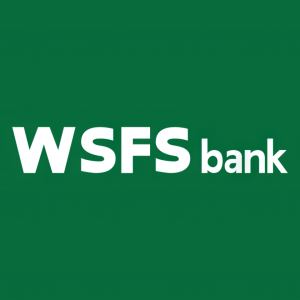Despite Pandemic, Businesses Feel Ready to Face Challenges to Drive Growth, Lean on Modifications to Operations to Get There
Rhea-AI Summary
WSFS Bank recently conducted a survey revealing that 64% of businesses in the Greater Philadelphia region view COVID-19 resurgence as their biggest challenge. Despite this, 54% report being well-positioned for future growth, with minority-owned businesses particularly optimistic (56% expect revenue increases). Operational changes during the pandemic led to lower costs and efficient marketing for 54% of respondents. However, 53% cited employee health as a major concern, and nearly one-third faced layoffs. Overall, business leaders remain confident, with 89% believing they can withstand further challenges.
Positive
- 54% of businesses indicated they are well-positioned for future growth.
- 56% of minority-owned businesses expect revenue increases in the next 12 months.
- 54% experienced growth attributed to lower operating costs and efficient marketing.
- 89% believe they can weather another storm.
Negative
- 64% view a resurgence of COVID-19 as their biggest challenge.
- 53% cited employee health and family infections as significant concerns.
- 29% experienced layoffs during the pandemic, especially in retail (47%).
News Market Reaction
On the day this news was published, WSFS gained 2.15%, reflecting a moderate positive market reaction.
Data tracked by StockTitan Argus on the day of publication.
Minority-owned businesses more confident than others to navigate through pandemic
WILMINGTON, Del., Nov. 05, 2020 (GLOBE NEWSWIRE) -- Sixty-four percent of area businesses view a resurgence of COVID-19 as the greatest foreseen challenge to their business, followed by an uncertain operating environment (
Despite these concerns, more than half of business leaders surveyed (
Facing Challenges Head-on
Businesses throughout the region noted that COVID-19 changed the way they operate, with 68 percent either reducing or modifying operations. However, one-quarter reported either no impact on their operations (
Those that experienced growth (
“Throughout the COVID-19 pandemic, businesses have been incredibly resilient and leaned on their ingenuity and deep knowledge of their customers’ needs to weather the storm,” said Steve Clark, Executive Vice President and Chief Commercial Banking Officer for WSFS Bank. “Whether they lowered operating costs, pivoted to provide customers with products and services in new ways, or worked closely with their lenders to obtain assistance, they dug deep and did what was necessary to keep their businesses not only running, but moving forward.”
Another significant challenge faced by business leaders was the pandemic’s direct impact on workers and their families, as 53 percent of businesses cited their employees and/or employees’ families contracting COVID-19 as the greatest challenge to their business, followed by a reduction in the amount of money spent or invested in the business (
Nearly one-third (
Resilient, Adaptive and Prepared
As they anticipate future challenges that may impact their businesses, respondents also feel recent experiences, the ability to pivot and preparedness leave them well equipped to handle a pandemic resurgence.
A majority of businesses (
A key factor to this optimism comes from growth during the pandemic with minority-owned businesses (
Ninety-one percent of survey respondents also believe they can weather another storm.
Banking on Relationships
In the face of COVID-19’s impact on businesses, 79 percent of respondents wanted their bank to be proactive in guiding them through the pandemic, including 81 percent of minority-owned businesses.
Nearly three-quarters (
Nine in 10 (
“As we move into 2021, it will be increasingly important for banks to stand side-by-side with their business Customers while they continue to navigate changes and challenges to how they operate,” adds Clark. “Nearly one-quarter of respondents (
Survey Methodology
The study was conducted by research company The Melior Group. The sample includes 300 businesses (including non-profits) with revenues between
About WSFS Financial Corporation
WSFS Financial Corporation is a multi-billion-dollar financial services company. Its primary subsidiary, WSFS Bank, is the oldest and largest locally managed bank and trust company headquartered in Delaware and the greater Philadelphia region. As of September 30, 2020, WSFS Financial Corporation had
| Media Contact: Eric Springer |
| (215) 864-1778 |
| espringer@wsfsbank.com |







